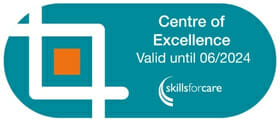Welcome to our new subscribers and thanks for the comments and interactions on Sarah’s LinkedIn page. We are delighted that people have connected with the “learning vs training” post, plus the recent one on Supervision.
This weeks blog is a guest appearance from Alex and he has chosen to visit another topic in a very similar vein because it has been on our collective minds recently, with the free COVID course and then when we were developing the new Training Matrix and that is……..CERTIFICATES!
Everyone wants a certificate!
But what if I said to you that a certificate is just a piece of paper? In reality, it is just that; it might be slightly thicker paper, it might even be in a frame, you might even have a collection of them (I know I do), but really, they are just bits of paper.
My driving licence used to be a piece of paper (yes, I know that dates me, but hey ho) until it disintegrated and got replaced by a piece of plastic, with a terrible photo on it.
Anyway, work with me for a minute here…
When my driving licence disintegrated in my wallet, was I suddenly no longer able to drive? No, I carried on driving and 99% of the time I did so within the law, the speeding ticket on the “Smart” M42 motorway reminded me of the restrictions, with three points! (I got external feedback about my practice)
Let’s go even further back to when I actually got my driving licence. In order to get it in the first place, I had to have loads of lessons with someone who had a lot of experience. Then I had to take a test and pass a range of competencies, such as emergency stop, reversing around a corner and mirror/signal/manoeuvre; only then did I get my licence. (Can you already see the similarities with the Care Certificate?)
What do people always say?
That you only really learn to drive after you pass your test… when the driving instructor is no longer there to “advise” you what to do, or use the “dual controls” to keep you safe.
After I passed my test, I received more external feedback when the Police felt the need to share some with me which caused me to reflect on my practice.
The Care Certificate and the Mandatories are exactly the same!
Just because we have the piece of paper does not mean we are safe to practise; it simply means we should have the knowledge and understanding we need to carry out our role safely. However, if we don’t put that knowledge into practice, the piece of paper is meaningless, even though we still have it.
Which is why the Care Certificate includes observations of practice, external feedback from an experienced colleague who can support and guide us, just like the Police did with my driving.
For example, when talking to the Police, the first question they asked, was “can I see your driving licence?” The next question went something like “do you know how fast you were driving?” CQC will ask questions in just the same way; they will want to know that you have a Care Certificate, but it is your knowledge and practice they are really interested in. CQC will want to see the training matrix, but they will use SOFI (Short Observation Framework for Inspection) to check that the knowledge is being applied in practice.
The reason the Skills for Care guidance for the mandatory courses states: knowledge and competence assessed at least annually is for exactly the same reason: it is not about the piece of paper, it is about the practice.
Remember that the Care Certificate is a download from the Skills for Care website, so anyone can get the Certificate, whenever they want – the real opportunity is to collect the evidence around the person’s practice.
In summary, certificates are just a piece of paper but your learning is visible in your behaviour. The people you support care about your practice…
If you are not familiar with our unique methodology then check out “Know, Understand and Do” here.





